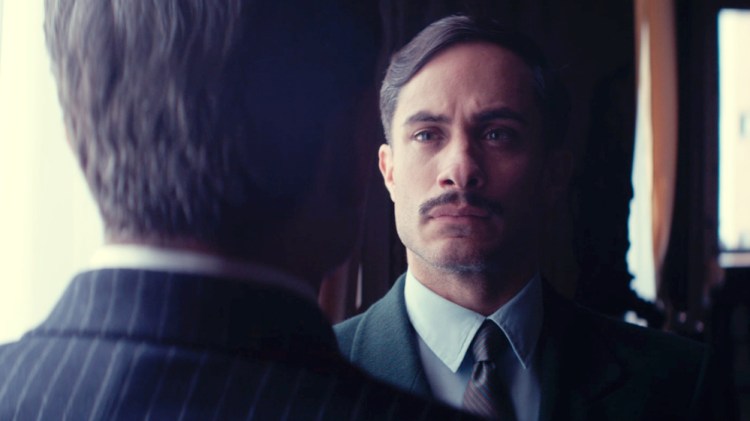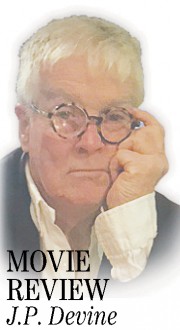“Neruda,” a new film by director Pablo Larrain, who recently brought us “Jackie,” establishes himself as a historian-mystery writer in the mode of America’s film noir era.
“Neruda,” like “Jackie,” is the telling of a tragic, troubled survivor of a dark passage in world history. It’s told with pages of facts, but with all the accoutrements of a Dashiell Hammett, Raymond Chandler mystery, and even a swipe of Victor Hugo.
“Neruda” tells us the story of the late 1940s and a chapter in the history of the nation of Chile. At the time the Chilean national identity was being shaped by the dark forces of fascism, with a political wind whipping up from the sewers of Chile into the senate, drawing rooms, and brothels of the neo powerful.
Pablo Neruda (Luis Gnecco) was the flamboyant Nobel Prize winning poet genius of Chile. He was an in-your-face communist and voice of the forgotten people, who, on this razor’s edge of Latin America history, was forced out of the senate, haunted and hunted, living in exile but hiding in full sight.
It was his nature to resist by flaunting and walking the streets while his enemies, the party of President Gabriel Videla (Alfredo Castro), tried to gain supreme power by leaving the side streets and hovels of the people to dance in the boulevards of the right wing powerful.
When the world was recovering from WWII in 1948, Videla outlawed the Communist Party, and initiated massive purges of the left. Neruda, hailed around the world as a poet laureate of the common man, was cast as a pariah, and then as he became an annoying fly, targeted as an enemy with a price on his head.
But director Larrain and writer Guillermo Calderon’s script is no tedious, tiresome history lesson. Calderon and Larrain turn noirish here, walking some dark streets with a narration by two victims, the eminent Neruda, cast here as a Jean Valjean, and his Inspector Javert, a government police inspector, Oscar Peluchonneau (the excellent Gael Garcia Bernal) with a dark, tortured family background.
Oscar, with a fierce desire to rise above his sordid childhood, a tale that would make a movie on its own, takes on the task of pursuing Neruda.
The film now slides away from the political into the poetic, blending the inner thoughts and dialogue of the hunted and hunter as though both men were creations of one another’s imagination.
The characters come alive as a brilliant collection of the colorful corrupt and the colorless common, the protagonists and the players all splendidly juxtaposed in an film noir ballet.
All that was needed was a “Vertigo” score by Bernard Herrmann and the voice over narration of Orson Welles as Neruda to make this film truly soar.
Sergio Armstrong’s cinematography is deliciously rich in tones that are clearly an homage to the impeccable work of the great, late Gordon Willis (“The Godfather”).
Mercedes Moran is touching and tender as Delia, Neruda’s long suffering wife. And, to no one’s surprise, much is owed to the casting of Gael Garcia Bernal (“Y Tu Mama Tambien,” “Fidel”) as the twisted and tortured Peluchonneau.
“Neruda” is a surprise gift in dead of winter, a page torn from yellowing newspapers and brought to life.
J.P. Devine is a former stage and screen actor.
Send questions/comments to the editors.



